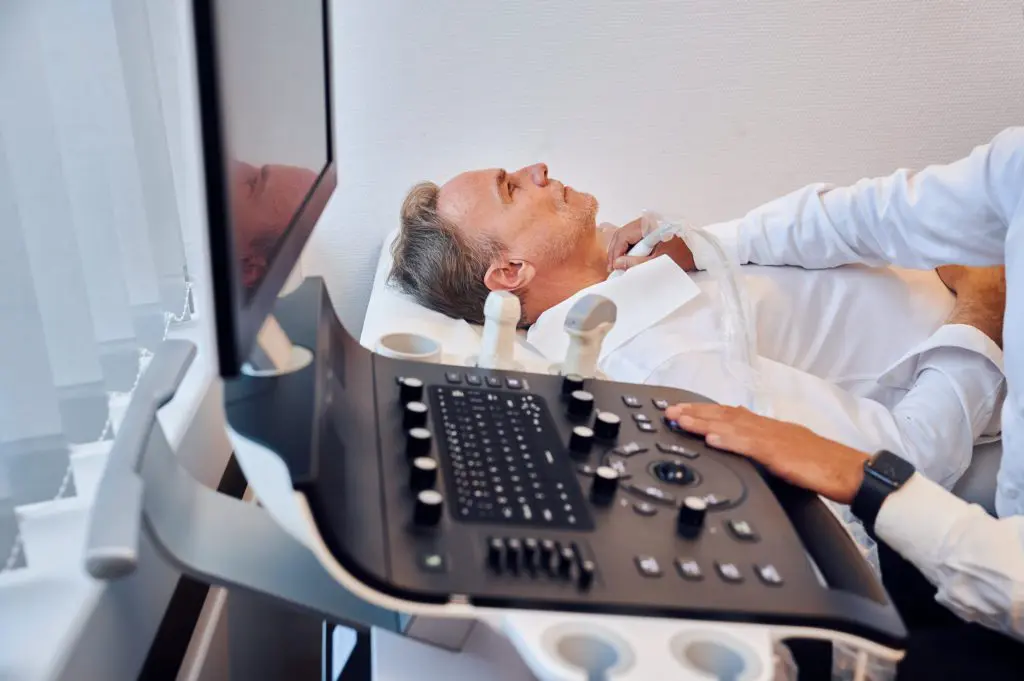
The causes of the various forms of dementia have not yet been fully researched. In addition to genetic factors, environmental influences and lifestyle are also thought to play a role in the development of the disease.
It is considered to be proven that in Alzheimer’s disease two defective proteins lead to the progressive degradation of the cerebral cortex. In this process, deposits (plaques) of amyloid proteins form and accumulate on the outside of the nerve cells of the brain. Within the nerve cells, so-called tau proteins proliferate. Both proteins disrupt the normal metabolism and communication of nerve cells. The consequence: the nerve cells die. The greatest risk factor for developing Alzheimer’s disease is age: the risk increases sharply from the age of 65. Genetic factors also play a significant role. First-degree family members have an increased prevalence of the disease.
The cause of vascular dementia is based on damage and partial death of brain cells due to blood clots or even brain hemorrhage. Therefore, unlike Alzheimer’s disease, limitations in mental function sometimes occur abruptly. The risk of developing vascular dementia also increases significantly with age.
Other factors include:
Early symptoms include not only that the memory of the affected person is declining, but also the waning of cognitive abilities indicates the onset of dementia. Depending on the type and course, various complaints may occur. Foremost among these is forgetfulness. Affected people no longer remember what they did or said recently. They also find it increasingly difficult to cope with simple everyday things that previously caused no problems. Orientation problems can also be an indication. Affected people can no longer find their way around their own environment or get lost on the way home from a walk or shopping. Other possible symptoms include speech and word-finding problems. Simple terms no longer come to mind, conversations become increasingly difficult. Fatigue and sleep problems are also not uncommon. Sleep patterns change – sufferers often nod off during the day and have trouble falling asleep in the evening despite being tired early. It hardly comes to deep sleep anymore. Often, this completely reverses the day-night rhythm. Probably the most stressful symptom for relatives, caregivers and acquaintances is the change in personality and typical behaviors of dementia patients. They become listless, apathetic, anxious or even spiteful, aggressive and have outbursts of anger. Others withdraw and no longer participate in social life as before. Affected persons themselves often deny mistakes, such changes of character and their decreasing abilities and do not want to admit the disease.

Start early detection of dementia or necessary treatment or reevaluate existing therapy
Consultation. Dementia testing and questionnaires. Blood analysis, if necessary.
20 – 30 minutes
in case of severe dementia, it is recommended to come accompanied by a legal guardian
Follow-up appointment. Referral to radiologist for imaging if necessary. Referral to neurologist if necessary.
usually covered by health insurance. Fees may apply for special blood analyses.
Ärztehaus Nymphenburg | 2nd floor
Rosa-Bavarese-Str. 1
80639 Munich
Consultation hours:
Mon, Tue, Thu: 08:00 – 17:00
Wed + Fri : 07:30-13:00
and by appointment
Phone:
089 / 856 395 82
Klicken Sie auf den unteren Button, um den Inhalt von app.arzt-direkt.de zu laden.